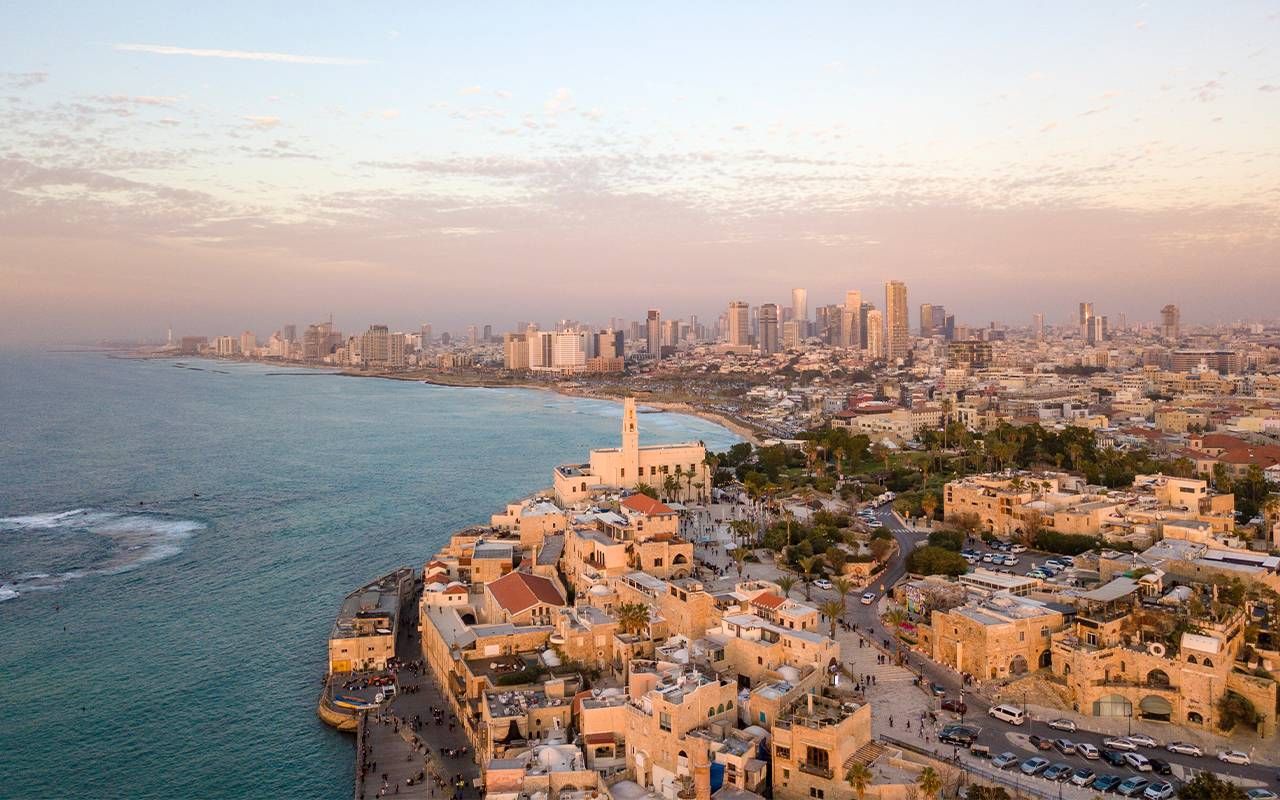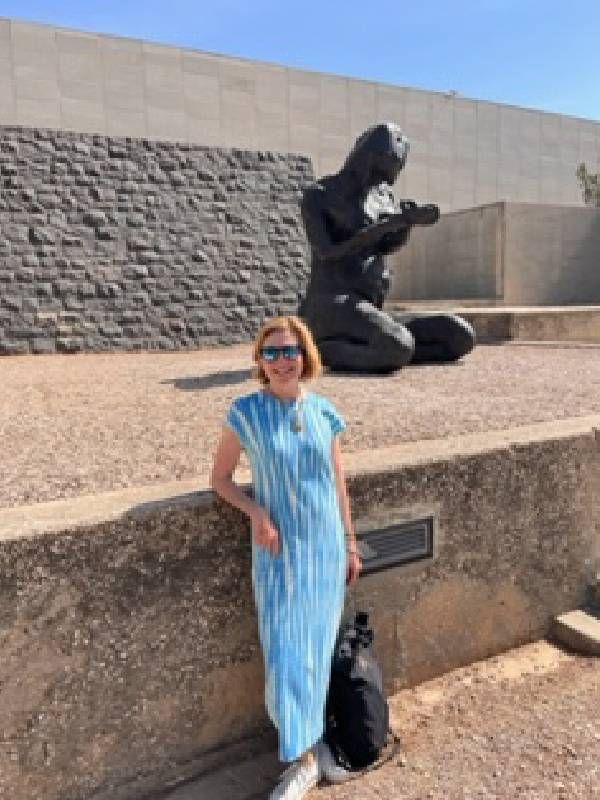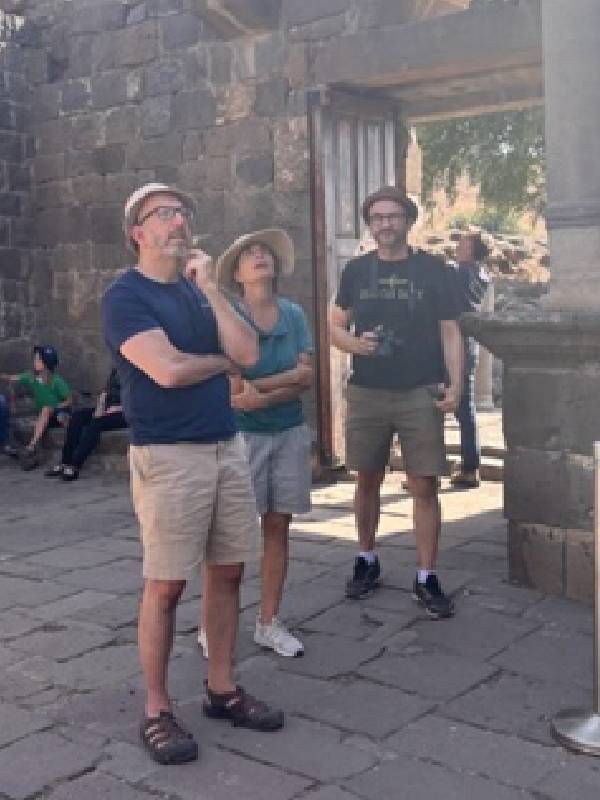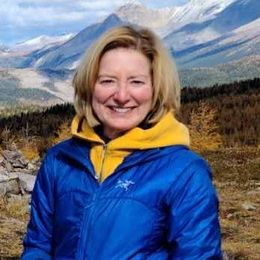An Epic Return to Israel with My Brother and His Husband
Visiting the country as well as family members was a poignant time of reconnection
As I drew nearer to the El Al check-in counter, I saw Simon and Thom, standing in the middle of a small mountain of luggage, scanning the crowds of travelers milling about the terminal. I had no need to feel guilty about the jumbo suitcase I was pulling behind me. My brother and his husband did not believe in traveling light.

Simon is my little brother. Thom is his husband of ten years. A few months ago, over a coffee at my house, Simon told me that he and Thom were thinking about a trip to Israel to visit our Uncle Harry, 92, our father's only brother. By the time Simon left my house, I had decided that I should join them.
On an emotional level, this trip felt truly epic. As an adult, I had rejected my parents' decision to treat Israel as a second home. But after they died, I started to feel nostalgic for times and places in my life that until then, I was happy to escape. A trip with Simon and Thom provided an obvious way to reconnect with my past.
The Emotional Nature of This Trip
The trip also appealed to me on a practical level. Although there are many benefits to solo travel, I always feel conspicuously alone eating dinner in a restaurant or sitting by myself on a tour bus. There are some ultra-religious neighborhoods in Israel where two gay men or for that matter, a single woman, might not feel welcome. In these places, our group could pass for a heterosexual couple travelling with a brother rather than a gay couple travelling with a sister. I was happy to let people see whatever they wanted to see during our holiday.
As an adult, I had rejected my parents' decision to treat Israel as a second home.
We decided to spend a few days in the northern part of Israel where our family lived, with stops in Haifa, Tiberius and the Golan. Then we would head to Jerusalem for some sightseeing. From Jerusalem, I would make my way back home to Toronto while Thom and Simon continued traveling.
Our Summers in Israel
My brother and I had spent many summers in Israel as teenagers. Our parents bought a condominium near the beach in Natanya in the early 1970s. For a few years, this condominium functioned essentially like a family cottage. In the summer, our family would board a plane from Detroit to Tel Aviv, returning to our home in Windsor, Canada, several weeks later. We walked the beach, swam in the surf, gathered in the restaurants in town and visited with our Uncle Harry's family on weekends.
The inconvenience of traveling such a long distance and being apart from their children and grandchildren eventually outweighed my parents' attachment to Israel.
As the kids in our family reached university age and the importance of friends and summer jobs overtook our lives, we stopped going to Israel. In their mid-sixties, my parents decided to sell the condominium. The wave of Zionism that had brought them to Israel had broken. The optimism about peace which had followed the Six Day War had been lost in the Yom Kippur War, the 1982 invasion of Lebanon and the Intifada. The inconvenience of traveling such a long distance and being apart from their children and grandchildren eventually outweighed my parents' attachment to Israel. They abandoned their plan to retire in Israel, opting instead for annual visits.
We arrived at Ben Gurion airport just outside Tel Aviv on a warm, sunny Friday in October and headed off to pick up our rental car. It was immediately obvious that we were in a much kinder climate than the one we had left. I discarded my sweatshirt and reached for my sunscreen. I gazed at the palm trees and felt unreasonably happy to be sitting on a bench in the parking lot of a car rental company.
Exploring the Neighborhood
On our first night in Israel, we stayed with a cousin and his family in the Wadi Salib neighborhood of Haifa. Although my cousin's apartment is modern, we were surrounded by buildings dating back to the British Mandate and even further, to the days of the Ottoman Empire. The long and complex history of this place only added to my appreciation of the spectacular view from my cousin's balcony that emerged as the sun went down.

Two nights later, we had dinner in a casual restaurant in the Golan Heights, near an archaeological dig which another cousin was leading. The food was delicious, and the ambience drew heavily from California and Texas. I had always associated the Golan Heights with the fraught politics of Israel. It was unsettling but not unpleasant to learn that the Golan is also a place to farm organic grapes and grass-fed cattle.
We arrived at our Airbnb in the German Colony area of Jerusalem on Simchat Torah (a Jewish holiday). Our host told us that the city was completely locked down for the Jewish holiday but that after sunset, the stores and restaurants would reopen.
Sure enough, the streets came to life at around 6 p.m. as they filled up with families traveling to and from their synagogues. I felt distinctly out of place among these Orthodox Jews, modestly outfitted in dark suits and long dresses, pushing strollers and carrying babies. But at the same time, I was grateful to be allowed to witness this scene.
Reunited with Family
Of course, the highlight of our trip was the time we spent with my Uncle Harry and Aunt Jackie at their home in Kfar Hittim, a tiny community near Lake Tiberius. We are all English speakers but since my uncle is quite deaf and my aunt can no longer participate in a conversation, my cousins had to mediate for us.
It made me terribly sad to see how much the passage of time had changed my uncle and aunt. In contrast, their house was totally unchanged. The walls of the living room were still lined with books and artwork. The kitchen had the same wooden table, on which a teapot and several cups were set out in constant anticipation of visitors who no longer came.

In the car on our way to the hotel, Simon and I reminisced to Thom about the many summers we had spent in Israel. We confessed to some wild adventures that had been secrets until now. We marveled at our parents' confidence that Israel was a safe place for their teenaged children. We made brutal fun of our younger selves and laughed at our shared innocence.
As I watched the lush green landscape of the Galilee roll by our car, I experienced a rush of affection for this place which in some ways was completely foreign to me and in other ways, deeply embedded in my identity.
During my week in Israel, I had found the country alternately disturbing and inspirational. I had renewed the bond with my cousins, formed decades before, and I had spent an afternoon feeling like my fifteen-year-old self, in the living room of my Uncle Harry's tiny house.
It was in the car that I realized why it felt so good to have done this trip with Simon and Thom. They were the perfect traveling companions for my epic journey and had made it easier for me to say good-bye to my uncle, for probably the last time.


